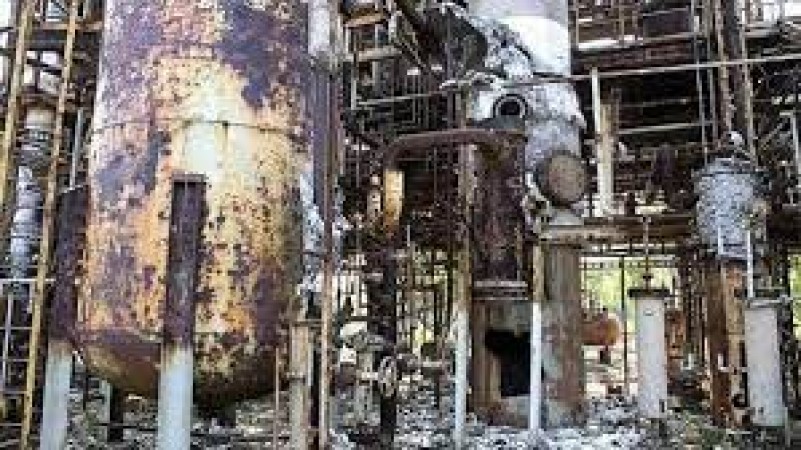
Accidents can have devastating consequences, causing loss of life, injury, and significant damage to property. Throughout history, numerous accidents have occurred, leaving a lasting impact on the affected areas and communities. In this article, we will explore five significant accidents that have taken place around the world. From industrial disasters to transportation mishaps, these incidents serve as reminders of the importance of safety and the need for preventive measures.
Chernobyl Disaster: The Catastrophe That Shook the World: The Chernobyl disaster, which occurred on April 26, 1986, in the Soviet Union (now Ukraine), remains one of the most catastrophic nuclear accidents in history. It was caused by a combination of design flaws and operator errors during a safety test at the Chernobyl Nuclear Power Plant. The explosion and subsequent fire released a massive amount of radioactive material into the atmosphere, leading to immediate deaths and long-term health effects for the exposed population.
Deepwater Horizon Oil Spill: An Environmental Disaster in the Gulf of Mexico: In April 2010, the Deepwater Horizon oil rig, operated by BP, experienced a catastrophic blowout in the Gulf of Mexico. This incident resulted in the largest marine oil spill in history. The explosion claimed the lives of 11 crew members and led to the uncontrolled release of millions of barrels of oil into the ocean. The environmental impact was devastating, affecting marine life, coastal ecosystems, and the livelihoods of communities dependent on the Gulf of Mexico's resources.
The Bhopal Gas Tragedy: A Tragic Incident in India: The Bhopal gas tragedy occurred on the night of December 2–3, 1984, in Bhopal, India. A pesticide plant owned by Union Carbide Corporation experienced a leak of methyl isocyanate gas, resulting in the deaths of thousands of people and leaving many more with severe health complications. The incident highlighted the importance of industrial safety regulations and raised awareness about the need for responsible handling of hazardous materials.
Fukushima Nuclear Disaster: Japan's Crisis: The Fukushima nuclear disaster unfolded on March 11, 2011, following a massive earthquake and tsunami in Japan. The natural disasters caused a series of equipment failures at the Fukushima Daiichi Nuclear Power Plant, leading to a nuclear meltdown and the release of radioactive materials. The incident forced the evacuation of nearby residents and had significant long-term effects on the environment and public health. It served as a wake-up call for the nuclear industry worldwide, emphasizing the importance of robust safety measures.
The Titanic Sinking: The Unsinkable Ship Meets Tragedy: The sinking of the RMS Titanic on April 15, 1912, remains one of the most infamous maritime disasters in history. The luxury passenger liner, dubbed "unsinkable," collided with an iceberg on its maiden voyage, leading to the deaths of more than 1,500 people. The tragedy highlighted the need for improved maritime safety regulations, including sufficient lifeboats and better communication systems.
Conclusion: Accidents can occur unexpectedly, causing immense devastation and loss. The five accidents discussed in this article serve as reminders of the importance of safety, preparedness, and responsible decision-making. It is crucial for individuals, organizations, and governments to learn from these incidents and take proactive measures to prevent similar catastrophes in the future.
Arsenal Locks in Rising Star Jurrien Timber to Fortify Defense and Fuel Title Ambitions
Girish Sharma Reigns as Two-Time Champion of Asia's Best Wedding Anchor at Wow Awards Asia 2023